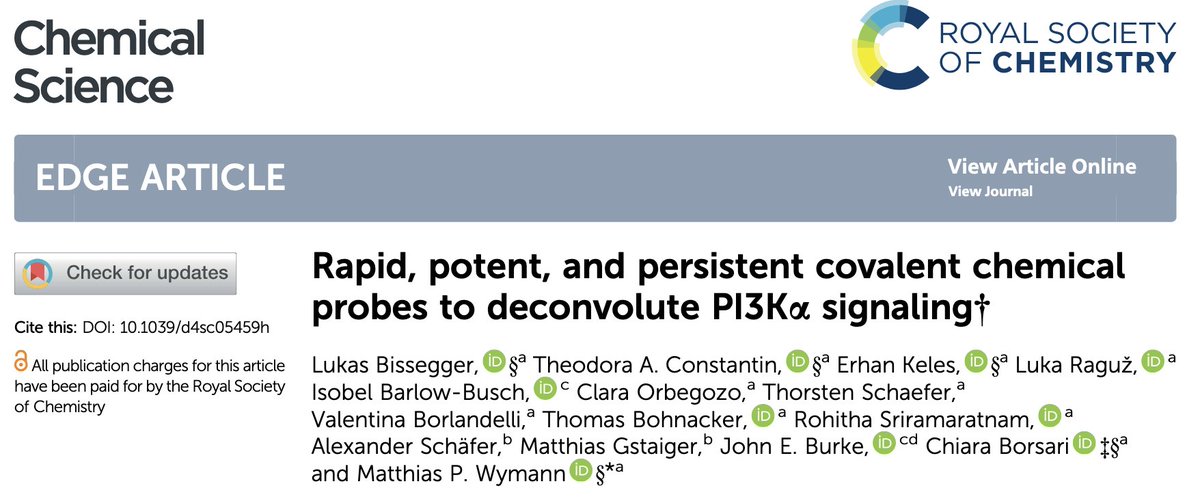
Matthias P. Wymann
@matthiaswymann
Research in cancer and inflammation
ID: 1505933268625117184
21-03-2022 15:45:06
5 Tweet
13 Followers
5 Following

Novel roadmap to target distal cysteines in kinases disclosed: covalent PI3Kalfa inhibitor in Chiara Borsari et al. Matthias P. Wymann @DepBiomedicine@UniBasel_en J. Am. Chem. Soc. #MedChem #CovalentProbes #StochasticApproach #rationaldrugdesign is online at pubs.acs.org/doi/10.1021/ja…

The role of PI3Kγ in the immune system: new insights and translational implications Nature Rev Immunol by Carrie Lucas & Matthias P. Wymann covers #Genetics and #drugdiscovery of #PI3K Now online at doi.org/10.1038/s41577…



Need a chemical probe from Department of Biomedicine Universität Basel to explore PI3K signaling? See Chemical Science our newest article on a highly cell permeable covalent PI3Kalfa inhibitor: "Rapid, potent, and persistent covalent chemical probes to deconvolute PI3Kα signaling".
